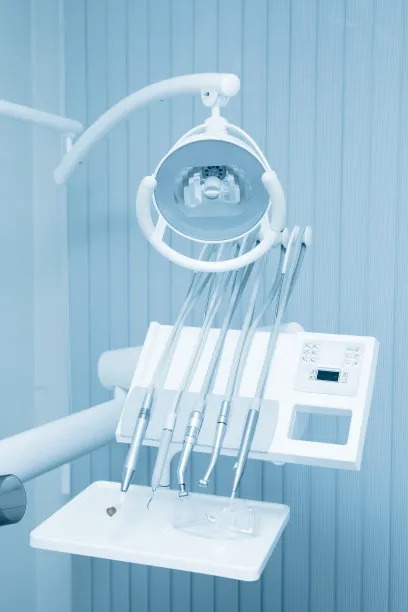Summary: Dental fillings are a crucial aspect of maintaining oral health, serving to restore the function and aesthetics of teeth affected by decay or damage. Before undergoing the procedure, it is essential to consider several guidelines to ensure optimal results. Primarily, it is vital to assess the type of filling material that best suits individual needs, along with understanding the potential risks involved. Additionally, patients should prepare adequately for the appointment and aftercare to promote effective healing. This article delves into essential guidelines and precautions necessary for a successful dental filling experience, ensuring better oral health outcomes.
1. Understanding Different Types of Filling Materials

When considering dental fillings, it is imperative to understand the variety of filling materials available. Common choices include amalgam, composite resin, glass ionomer, and porcelain. Each material has its unique properties, advantages, and drawbacks. For instance, amalgam is known for its durability and is often used for fillings in the back teeth, while composite resins blend with the natural color of teeth and are ideal for visible areas.
Your dentist can help determine the most suitable material based on various factors including the location of the cavity, your dental health, and any allergies you may have. It is prudent to discuss these aspects during your consultation to make an informed decision that aligns with your health needs and aesthetic preferences.
Additionally, understanding the longevity of each filling type is crucial. Some materials may require more frequent replacements or touch-ups, affecting overall long-term dental costs. Ensure that you weigh these factors to find a balance between cost, longevity, and appearance.
2. Assessing Potential Risks and Complications
Before getting a dental filling, it is vital to consider potential risks and complications associated with the procedure. Common side effects may include sensitivity in the filled tooth, discomfort, and allergic reactions to the filling material. Each individual may react differently, and it is crucial to discuss any pre-existing conditions or sensitivities with your dentist.
Infections can also be a risk if the cavity is not entirely cleaned out before the filling is applied. Inform your dentist of any symptoms that might suggest an infection, such as swelling or persistent pain. Proper diagnosis and preparation are essential in minimizing these risks.
Furthermore, it is essential to recognize that not all fillings will last indefinitely; thus, patients must remain vigilant for signs of deterioration or further decay. Regular dental check-ups allow your dentist to monitor the condition of your fillings, ensuring any adjustments or replacements are carried out timely.
3. Preparing for Your Dental Filling Appointment
Preparation for a dental filling appointment can significantly influence the outcome of the procedure. Prior to the appointment, it is worthwhile to review your dental health history and any medications you are currently taking. Certain medications may interact with the dental materials or anesthesia used during the filling process.
Being well-hydrated can further enhance your comfort during the appointment. Moreover, consider having a meal beforehand to ensure you dont feel light-headed or uncomfortable during the procedure. Taking notes regarding any questions or concerns you have can also help streamline the discussion with your dentist.
Finally, arrange for someone to accompany you if you feel anxious or if dental anesthesia will be used. This support can help alleviate any nerves and ensure you have a safe journey home post-procedure.
4. Aftercare for Optimal Healing and Longevity
Once the dental filling procedure is complete, aftercare is crucial for ensuring optimal healing and longevity of the filling. It is often advised to avoid hard or sticky foods for at least 24 hours to allow the filling to set properly. Being mindful of your diet during this period can prevent complications or potential damage to the new filling.
Hygiene practices play a vital role in aftercare. Maintaining regular brushing and flossing routines is essential to avoid additional decay surrounding the filling. Be gentle around the filled area, particularly in the initial days as the sensitivity may be heightened.
Finally, schedule follow-up appointments as recommended by your dentist. These visits provide an opportunity to assess the fillings condition and address any issues as they arise, ensuring the best care for your oral health.
Summary:
Maintaining optimal oral health through dental fillings requires understanding various filling materials, assessing potential risks, preparing adequately for appointments, and following essential aftercare procedures. Education on these aspects not only helps in achieving a successful filling but also promotes better dental hygiene and overall health.
This article is compiled by Vickong Dental and the content is for reference only.
Vickong Dental
Vickong Dental is a large medical group established in Hong Kong in 2008 by professors from well-known medical universities in Guangdong and Hong Kong, as well as medical doctors from key national '985' universities (including Master's supervisors and senior professors). The chain of branches brings together expert dentists with PhDs and Master's degrees from Hong Kong and Mainland China, committed to providing high-quality dental treatment.
"Vickong Dental Practices the University Motto of 'Healing and Serving Society,' with a Stable Operation for Sixteen Years. It Has Been honored with Hong Kong Enterprise Leaders's Choice,' and is a Global Trusted Implant Center for the Nobel Implant System. Recommended by Hong Kong Metro Broadcast and Guangdong Television, it Serves Customers from Over Thirty Countries and Regions, Gaining the Trust and Favor of Citizens from the Guangdong-Hong Kong-Macau Greater Bay Area and Surrounding Cities.

Thousands of customers' unanimous praise
The most recognized and highly recommended dental service by customers in the Guangdong-Hong Kong-Macau Greater Bay Area
We Ensure You Receive Detailed Care and Attention Here
Hong Kong standards, Shenzhen prices, Your Trusted English-speaking dentists

Vickong Dental Medical-Grade Instrument Disinfection Process
Vickong Dental Medical-Grade Instrument Disinfection Process

Vickong Dental Chain: A Warm and Comfortable Environment for Treatment






Appointment Hours

Q&A
Why choose Vickong Dental?
Vickong Dental practices the university motto 「Medicine to Benefit Society」, with each branch bringing together highly qualified dentists with doctoral and master’s degrees from Hong Kong and the Mainland, and has maintained seventeen years of steady operation。Recipient of 「2024 Hong Kong Enterprise Leaders Brand」, 「2025 Hong Kong Enterprise Leaders Brand」, a Nobel Biocare Global Trusted Implant Center, and a brand recommended by Metro Radio Hong Kong and Guangdong TV。
To date, we have served customers from more than thirty countries and regions,earning exceptionally high word-of-mouth recognition and trusted recommendations from residents across the Guangdong-Hong Kong-Macao Greater Bay Area and surrounding cities
We have eight major branches in Zhuhai、Shenzhen,and a consultation and service assurance center in Hong Kong,so you can book a free consultation at any time for any questions,which is very reassuring.
If I do not accept the quotation after the CT scan, will I be charged??
No! As long as the actual treatment has not started, you will not be charged any fees.
Will there be any additional charges during the treatment process?
No, there won’t be any additional charges. Before treatment begins, we will clearly explain the treatment plan and its corresponding fees. Only after the patient agrees and signs the consent form will we proceed with the dental service.
Can I pay in Hong Kong dollars?
Yes. Vickong Dental accepts payment in Hong Kong dollars. The amount will be converted based on the exchange rate of the day, and the applicable rate will be clearly communicated to you in advance.
Can I reschedule my appointment at any time?
Yes. Please contact us via **WeChat** or **WhatsApp** as early as possible, providing your original appointment time and details, along with your preferred new date and time slot for rescheduling.













